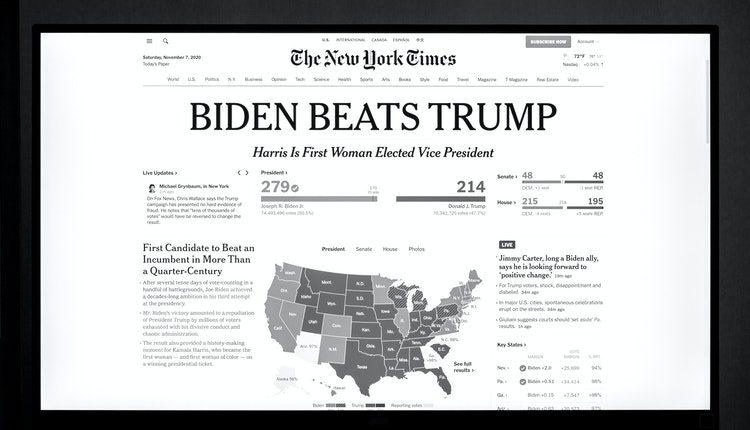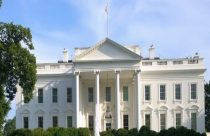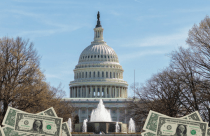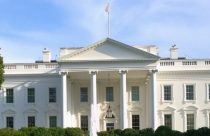How Will the Scientific Community Be Affected With Joe Biden Coming to Power?

There were several who were overjoyed with the recent US election results, the most important one being the scientific community. Joe Biden will soon be president of the United States, and scientists the world over are breathing a collective sigh of relief. Researchers are hopeful that much of the damage can be repaired. But there are a huge number of challenges that Biden would have to face, while tracing the footsteps of Trump.
More Aggressive Approach towards the Pandemic Control
One of the most difficult challenges before Biden would be controlling the pandemic. As soon as he comes to power he would need to launch a more aggressive pandemic response. In fact, he seems to have planned it already.
Biden had taken up the issue of confronting the pandemic right from the beginning of his presidential campaign. On his first day of campaign, Biden had promised to “stop the political theater and willful misinformation.” He also plans to stop all the confusion and discrimination within the country. Biden intends to hold daily briefings with scientists. These briefings would put scientists and public health leaders before each other. He also promises to ensure the safety and freedom to government scientists for performing their jobs.
Not only this, Biden had also pledged to rejoin the World Health Organization and boost funding for its pandemic efforts. Trump had pulled the United States out of the World Health Organization earlier this year. He had criticized the international agency for supporting China, where the first cases of COVID-19 were reported.
Shortly after being declared winners of the election, Biden and Harris announced a COVID Advisory Board. This advisory board will include leading public health experts. These experts will help them shape the country’s response, while curbing the current surge in cases. On the contrary, Trump had sought to downplay COVID-19, while opposing state and local efforts to contain the coronavirus as too costly.
Beating the Climate Change Issue
Another high priority for Biden will be to reverse many of Trump’s policies that affect climate, the environment and public health. Right at the top of the list is the Paris climate agreement. The United States formally withdrew from this accord on 4 November. However, Biden intends to rejoin the pact after taking office in January. Biden and Harris have also campaigned on a 2-trillion USD plan to boost clean energy and reduce greenhouse-gas emissions. Biden’s election holds particular significance for scientists at the US Environmental Protection Agency (EPA). Mostly because EPA had suffered under Trump’s efforts to roll back regulations and increase industry influence. It had also seen undermining the use of science to curb pollution and protect public health.
Resolving Other Environmental Issues
Besides the climate change, environmental scientists have a long wish list. They want Biden to undo changes in how agencies review the environmental impacts of major projects and evaluate the risks posed by toxic chemicals, which critics say downplay the risks and inflate economic benefits. An organization named Environmental Protection Network, made up of former Environmental Protection Agency officials, wants Biden to abort a proposed rule that could bar the agency from using health and other data that can’t be made public because of concerns about patient privacy or trade secrets.
Conservation scientists too are not far behind. They hope that the new US President will block federal permits for several high-profile energy and mining projects, including proposed pits in Alaska and Minnesota that threaten aquatic habitats. Paleontologists, similarly, hope Biden to restore fossil-rich lands that Trump removed from several national monuments in western states, while ocean scientists want him to reimpose fishing limits that Trump lifted at a marine monument off the coast of New England.
Providing More Budget to the US Science Agencies
In March 2019, Trump threatened the US science budget by asking Congress to slash the budgets of almost all federal research agencies. President Trump recently made it clear that he wanted no boost to the budgets of two major US science agencies. These agencies are the National Institutes of Health (NIH) and the National Science Foundation (NSF). The only exceptions were the Department of Energy (DOE) and NASA. Trump insisted on increased funding for these two agencies. This came soon after the December 2018 – January 2019 US government shutdown. The economic losses, estimated at around US$30 billion, also affected the scientific community. At the NSF alone, around 2,000 grant proposals were delayed or otherwise affected.
Rebuilding the Trust Between the Administration and Science Agencies
Besides the budget loss, there were other issues that the researchers felt, i.e., loss of respect. Under Trump, many researchers who worked for the federal government expressed their discontent, highlighting that they never felt valued or respected. Employee surveys across several science agencies have emphasized on this, and there had been many reports of researchers leaving their jobs. In this context, Biden promises to reverse that trend, starting by replacing Trump appointees who have suspect scientific credentials or hold views far out of the mainstream.
Taking Stand on Other Issues
Biden’s team has also promised to make decisions grounded in science. Biden’s administration will also reopen lines of communication with other countries and international organizations in its fight against the coronavirus. The new US President plans to reverse these steps and bring back international harmony among the nations.
However, it could take months or even years to sort all these issues out and rebuild the whole research infrastructure once again. It would possibly take longer for Biden to win back the trust of the research community and fight the current global crisis, with them by the side.
What do you think this sudden shift in the US administration would mean for the global scientific community? Please share your thoughts with us in the comments section below.








